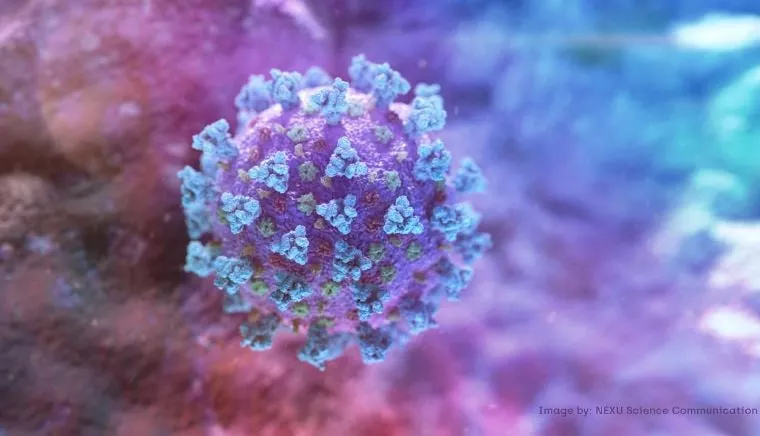Steroid's Covid-19 benefits confirmed; spotlight on immune cells
Clinical trial looking at steroid dexamethasone confirms benefits in its use in Covid-19 patients
The following is a brief roundup of some of the latest scientific studies on the novel coronavirus and efforts to find treatments and vaccines for Covid-19, the illness caused by the virus.
Full dexamethasone trial results released
The full results of a large randomised clinical trial in Britain - the gold-standard of tests - looking at the steroid dexamethasone confirm the benefits in its use in Covid-19 patients that were hinted at in early findings issued last month. The results, released on Friday in the New England Journal of Medicine, showed benefits for people with advanced or moderate disease.
Overall, 2,104 Covid-19 patients were randomly assigned to receive dexamethasone and 4,321 to receive usual care.
Four weeks later, dexamethasone had reduced the risk of death by 36% among patients who needed mechanical ventilation when they entered the study, and by 18% among those who were receiving oxygen without mechanical ventilation. The drug did not improve survival among patients who were not using oxygen or mechanical ventilation.
India's richest man takes on Amazon, Walmart in e-commerce gamble
In an editorial, Dr H. Clifford Lane and Dr Anthony Fauci from the US National Institute of Allergy and Infectious Diseases said the results show the crucial importance of large, well-designed, carefully run, randomised controlled trials.
Even during a pandemic, they said, when it might be tempting to simply "give all therapies a chance," in order for patients' outcomes to improve "there will need to be fewer small or inconclusive studies and more studies such as the dexamethasone trial."
Immune cells may recognise the coronavirus years later
Researchers in Singapore are not worried that antibodies to the novel coronavirus fade quickly. More important, they said, is that immune system cells called T cells and B cells "remember" the virus and can trigger an immune response. As reported on Wednesday in the journal Nature, the researchers looked for "memory" T cells in 36 Covid-19 survivors, 23 survivors of the 2003 coronavirus that caused SARS, and 37 people who never had either illness. All Covid-19 survivors had T cells that recognized the novel coronavirus.
The SARS survivors all had T cells that remembered the 2003 virus - and their T cells also recognized the new coronavirus. Furthermore, more than half of those who were never infected with either coronavirus had protective T cells, suggesting they may have encountered other coronaviruses in the past, and there may be some pre-existing immunity to the new coronavirus in the general population.
"We find the present discussion about 'antibodies are fading away' a little pointless," three of the researchers told Reuters in a joint email.
"What is important is that a level of B and T cell memory remain to be present to quickly start an effective immune response able to stop the viral spread," said Anthony Tanoto Tan of Duke-NUS Medical School, along with colleagues Nina Le Bert and Antonio Bertoletti. T cells can kill infected cells to slow the virus down, and they also help instruct B cells to produce antibodies, the researchers said.
Low interferon levels identify high-risk Covid-19
Low blood levels of a type of interferon (IFN) could identify Covid-19 patients at high risk for severe pneumonia and acute respiratory distress syndrome. Interferons are naturally occurring proteins that help the body's immune system fight infection.
In a study published on Wednesday in the journal Science, researchers found that severely and critically ill Covid-19 patients had severely impaired production of IFN type I, persistent virus in the blood, and an excessive inflammatory response.
Solar probe reveals sun's tiny 'campfires' in closest-ever photos
They said the findings support the potential value of treating these patients early on with IFN, combined with anti-inflammatory drugs or steroids such as dexamethasone in the most severely ill people.
They also found that low plasma levels of type-I IFN were seen before patients began to deteriorate and require intensive care. "Levels of circulating Type 1 IFN could even characterise each stage of the disease, with the lowest levels observed in the most severe patients," they said in a news release.
Heart disease may underlie mysterious blood findings in Covid-19 patients
Severe Covid-19 predominantly affects the lungs, but elevated blood levels of troponin, a protein released during heart injury, also are common. To learn more, cardiologists in London performed cardiovascular magnetic resonance scans in Covid-19 survivors who had at least mildly elevated troponin levels while hospitalised.
Among 29 people with no obvious reason for elevated troponins, such as a heart attack, they found two patterns of myocarditis or heart muscle inflammation. In patients with one pattern, heart function seemed unaffected.
These patients should undergo cardiology follow-up to monitor for any potential long-term consequences, Dr Dan Knight of the Royal Free Hospital told Reuters. The other pattern, seen in roughly a third of patients, was associated with reduced blood supply to the heart, or ischemic heart disease.
Many patients in this group "had important coronary artery disease which was previously unknown but required further treatment" that would not have been offered had troponin levels not been investigated, Knight said. The main message, Knight added, is that when troponin levels are elevated in Covid-19 patients with no apparent reason, further workup could reveal undiagnosed heart disease.


COMMENTS
Comments are moderated and generally will be posted if they are on-topic and not abusive.
For more information, please see our Comments FAQ